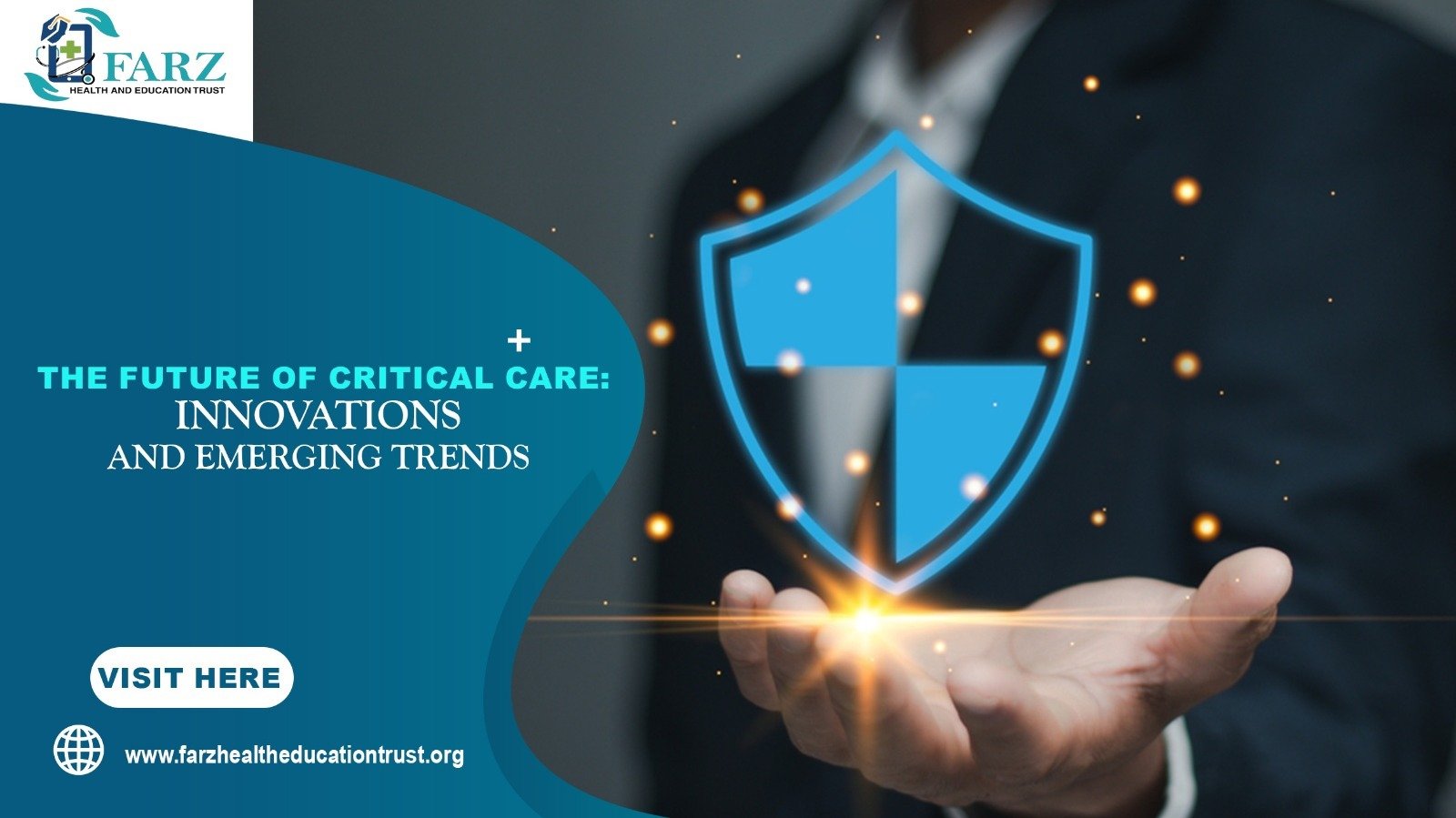
Critical care is at the heart of modern medicine, ensuring life-saving interventions during the most critical moments. As healthcare advances, emerging innovations are redefining the way we deliver care—improving outcomes, reducing response times, and expanding accessibility. At Farz Health and Education Trust, we aim to shed light on the future of critical care and the exciting trends transforming this vital field.
Why Critical Care Needs Innovation:
Critical care teams handle complex and life-threatening conditions, where every second counts. With rising global health demands and evolving patient needs, innovation is no longer optional—it’s essential to:
- Improve survival rates.
- Enhance efficiency in emergency interventions.
- Address gaps in access to specialized care.
Emerging Innovations in Critical Care:
- Artificial Intelligence (AI) in Diagnosis and Decision-Making
- AI-powered systems analyze patient data in real-time, identifying early warning signs of critical conditions.
- Machine learning models assist doctors in making faster, more accurate treatment decisions.
- Predictive analytics can anticipate complications before they occur.
- Telemedicine for Remote Monitoring
- Enables real-time monitoring of critically ill patients, even in remote areas.
- Provides on-demand access to specialists for quicker consultations.
- Reduces the need for patient transfers, saving crucial time.
- Wearable Devices and Biosensors
- Continuous monitoring of vital signs using non-invasive devices.
- Early detection of abnormalities in heart rate, oxygen levels, and blood pressure.
- Improves patient safety by providing constant updates to healthcare teams.
- Robotics and Automation
- Robotic-assisted surgeries are enhancing precision in critical interventions.
- Automated drug delivery systems ensure precise dosage in ICU settings.
- Remote-controlled robotic systems are reducing infection risks for providers.
- Personalized Medicine in Critical Care
- Tailored treatments based on a patient’s genetic makeup and unique health profile.
- Improves efficacy of therapies for conditions like sepsis or respiratory failure.
- Minimizes side effects by optimizing drug protocols.
- Advanced Imaging and Diagnostics
- Point-of-care ultrasound and portable CT/MRI devices enable quicker diagnostics in ICU.
- AI integration in imaging tools reduces human error and speeds up analysis.
- Next-Generation Ventilators and ECMO Machines
- Smarter devices designed for complex respiratory support cases.
- Enhanced monitoring and control systems for critical lung and cardiac support.
The Role of Training and Education:
- Empowering healthcare providers with advanced training on emerging technologies.
- Promoting interdisciplinary collaboration for better patient outcomes.
- Equipping rural and underserved areas with tools to improve critical care delivery.
Farz Health and Education Trust: Paving the Way Forward:
At Farz Health and Education Trust, we believe that innovation should be accessible to all. By supporting education, training, and research in critical care, we’re working to ensure that these life-saving advancements reach every corner of the world.
Conclusion:
The future of critical care is here, driven by innovation and emerging trends that promise to save more lives and improve patient outcomes. From AI and robotics to telemedicine and personalized medicine, the possibilities are endless. Let us embrace this transformation and work towards a healthier tomorrow.
Follow Farz Health and Education Trust for more insights on healthcare innovation and education. Together, let’s build a brighter future for critical care!
